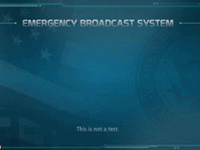03.01.2023, 11:25
Your Ultimate Guide Cash-Out Refinance In Real Estate
The house you purchase is one of the biggest investment you can make. However, it can be difficult to accumulate the savings to fund home renovations and repairs. It is possible to avail refinancing of cash-outs. Instead of using personal loans, credit cards or second mortgages, cash-out refinancing is a great option to help you achieve your home improvements goals. Cash-out refinances can also help you cover repair bills, consolidate debt, or even pay off your student loans by using the cash you've already deposited to your mortgage. This article will provide the basics of cash-out financing so that you can determine if it's right for you.
What Is A Cash-Out Refinance?
Cash-out refinances let you change your home equity into cash. The new mortgage will be for more than the current mortgage balance. The difference is paid in cash. In general, refinancing is replacing a mortgage with a fresh one with more favorable conditions for the buyer. Refinancing your mortgage can help you reduce your monthly payment and reduce interest rates, negotiate new terms of your loan, eliminate or add additional borrowers, and gain access to the equity of your home when you refinance using cash. See the top first time home buyer for website info.
![[Bild: twitter_APH_mortgage_calculator_og.jpg]](https://aphfinancial.co.uk/assets/img/og_images/twitter_APH_mortgage_calculator_og.jpg)
How Do Cash-Out Refinances Work
If you refinance your cash-out, you can use your home as collateral to secure a new loan, along with some cash, which results in a larger mortgage than what is currently due. Your home equity could be a great source for funds for expenses, emergencies or other requirements. The lenders are willing to assist borrowers who are interested in cash-out refinancing. The lender evaluates the borrower's credit rating as well as the current mortgage terms as well as the amount needed to repay the loan. The lender can make an offer based upon the underwriting analysis. The lender offers a loan. Once the borrower has paid back the loan, they lock them into a new plan for monthly payments. In addition to the mortgage repayment the cash payment is additionally made. A standard refinance does not give cash. The borrower is able to receive lower monthly payment. In general the cash-out refinance money can be utilized in any way that the borrower sees fit. Many use the money for larger expenses, such as consolidating debt or paying medical bills or as an emergency reserve. Refinances that cash out have less equity which means the lender has to take on more risk. The closing costs, fees, and interest rates for a cash-out refinance may be higher than those of a standard one. Refinancing is possible for non-VA loans with more favorable conditions and with lower fees for those with specialty mortgages. Check out the recommended mortgage payment calculator for website tips.
![[Bild: 71slOLCiUKL.jpg]](https://m.media-amazon.com/images/I/71slOLCiUKL.jpg)
A Cash-Out Refinance Example
Imagine purchasing a $300,000.00 home with a mortgage of $200,000. After years, you are still in debt for $100,000. You have at least $200,000 in equity, provided that the value of the property isn't less than $300,000. If you have low rates and are refinancing your house, the underwriting process can permit you to borrow up to 80 percent of the equity. A lot of people aren't willing to take on another $200,000 loan, however having equity could boost the cash flow. Let's say your lender lends you 75% of the value of your house. If you own a $300,000.00 house this would translate to $225,000. The remaining principal amount must be paid back with $100,000 and you'll have $125,000 in cash. If you are only looking for $50,000 in cash, then you could refinance the loan using an $150,000 mortgage loan, with a lower rate of interest and new terms. As part of the loan you take out, you will receive the balance of $100,000 and $50,000 in cash. This means that you could take a $150,000 home loan and get $50,000 cash. After that, you will be able to start making monthly payments for the full amount. This is an advantage of collateralized loans. Since the $100,000 and $50,000 loans are combined into one loan the new lien on your house will be applicable to both.
The house you purchase is one of the biggest investment you can make. However, it can be difficult to accumulate the savings to fund home renovations and repairs. It is possible to avail refinancing of cash-outs. Instead of using personal loans, credit cards or second mortgages, cash-out refinancing is a great option to help you achieve your home improvements goals. Cash-out refinances can also help you cover repair bills, consolidate debt, or even pay off your student loans by using the cash you've already deposited to your mortgage. This article will provide the basics of cash-out financing so that you can determine if it's right for you.
What Is A Cash-Out Refinance?
Cash-out refinances let you change your home equity into cash. The new mortgage will be for more than the current mortgage balance. The difference is paid in cash. In general, refinancing is replacing a mortgage with a fresh one with more favorable conditions for the buyer. Refinancing your mortgage can help you reduce your monthly payment and reduce interest rates, negotiate new terms of your loan, eliminate or add additional borrowers, and gain access to the equity of your home when you refinance using cash. See the top first time home buyer for website info.
![[Bild: twitter_APH_mortgage_calculator_og.jpg]](https://aphfinancial.co.uk/assets/img/og_images/twitter_APH_mortgage_calculator_og.jpg)
How Do Cash-Out Refinances Work
If you refinance your cash-out, you can use your home as collateral to secure a new loan, along with some cash, which results in a larger mortgage than what is currently due. Your home equity could be a great source for funds for expenses, emergencies or other requirements. The lenders are willing to assist borrowers who are interested in cash-out refinancing. The lender evaluates the borrower's credit rating as well as the current mortgage terms as well as the amount needed to repay the loan. The lender can make an offer based upon the underwriting analysis. The lender offers a loan. Once the borrower has paid back the loan, they lock them into a new plan for monthly payments. In addition to the mortgage repayment the cash payment is additionally made. A standard refinance does not give cash. The borrower is able to receive lower monthly payment. In general the cash-out refinance money can be utilized in any way that the borrower sees fit. Many use the money for larger expenses, such as consolidating debt or paying medical bills or as an emergency reserve. Refinances that cash out have less equity which means the lender has to take on more risk. The closing costs, fees, and interest rates for a cash-out refinance may be higher than those of a standard one. Refinancing is possible for non-VA loans with more favorable conditions and with lower fees for those with specialty mortgages. Check out the recommended mortgage payment calculator for website tips.
![[Bild: 71slOLCiUKL.jpg]](https://m.media-amazon.com/images/I/71slOLCiUKL.jpg)
A Cash-Out Refinance Example
Imagine purchasing a $300,000.00 home with a mortgage of $200,000. After years, you are still in debt for $100,000. You have at least $200,000 in equity, provided that the value of the property isn't less than $300,000. If you have low rates and are refinancing your house, the underwriting process can permit you to borrow up to 80 percent of the equity. A lot of people aren't willing to take on another $200,000 loan, however having equity could boost the cash flow. Let's say your lender lends you 75% of the value of your house. If you own a $300,000.00 house this would translate to $225,000. The remaining principal amount must be paid back with $100,000 and you'll have $125,000 in cash. If you are only looking for $50,000 in cash, then you could refinance the loan using an $150,000 mortgage loan, with a lower rate of interest and new terms. As part of the loan you take out, you will receive the balance of $100,000 and $50,000 in cash. This means that you could take a $150,000 home loan and get $50,000 cash. After that, you will be able to start making monthly payments for the full amount. This is an advantage of collateralized loans. Since the $100,000 and $50,000 loans are combined into one loan the new lien on your house will be applicable to both.



 Wir spielen im Jahr 2025 in Michigan, Detroit. Zur Zeit spielen wir im Monat Juni. Wir stehen ein paar Tage kurz vor der Purge - Die Säuberung. Hier kommt der Wetterbericht für den Monat Juni und speziell für die bevorstehende Nacht aller Nächte.
Wir spielen im Jahr 2025 in Michigan, Detroit. Zur Zeit spielen wir im Monat Juni. Wir stehen ein paar Tage kurz vor der Purge - Die Säuberung. Hier kommt der Wetterbericht für den Monat Juni und speziell für die bevorstehende Nacht aller Nächte.



